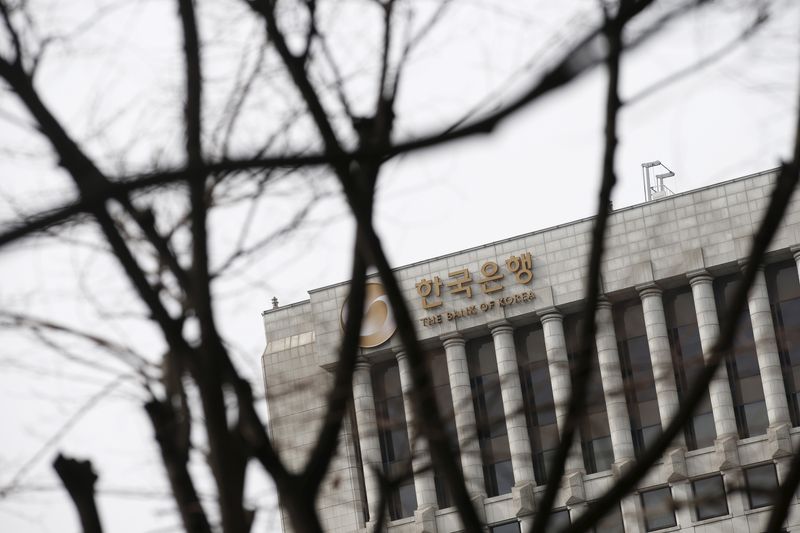By Cynthia Kim and Yena Park
SEOUL (Reuters) - A former Bank of Korea deputy governor on Friday said the central bank will probably not cut interest rates this year as the battle against inflation is far from over, challenging the market consensus of two rate cuts in the second half.
"Interest rate cuts are not easy even for the second half of the year," Lee Seung-heon, the former No. 2 at the bank, said in an interview with Reuters. "It's not like the economy is on a clear downhill and there is no need to rush for a cut just because (growth) momentum isn't as robust."
Lee, who retired in August, spoke ahead of the central bank's interest rate review on Friday and as the won traded around 1,350 to the dollar, not far from this year's lows.
His comments challenge long-held analysts' predictions for 25 basis-point cuts in both the third and fourth quarters to take the benchmark interest rate down to 3.00% by the end of this year from current 3.50%.
The BOK delivered a total of 300 basis points of hikes since mid-2021.
Policymakers will need to wait at least until June to give markets any signal about possible cuts because higher global oil prices threaten to add sharply to price pressures and as strength of domestic consumption needs to be further examined, he said.
Indeed, the latest data showed headline inflation remains sticky.
The Consumer Price Index (CPI) advanced 3.1% in March from a year earlier, the same pace as February after three months of easing, stoking views that it's still too early for the BOK to consider easing.
The BOK's inflation target is set at 2%.
Lee, currently a professor at Soongsil University, stopped short of specifying a timeline for when officials may be able to reduce borrowing costs.
"We will see some clarity on the course of the economy by June, but I say economic data will likely to give officials more reasons to hold off."

In a February press conference, BOK Governor Rhee Chang-yong revealed that one of the board's seven members wanted the door for a rate cut to remain open over the next three months. That had prompted investors to bet on a cut in the short term.
In the past the BOK has tended to cut rates within a few months of a dissenting vote.